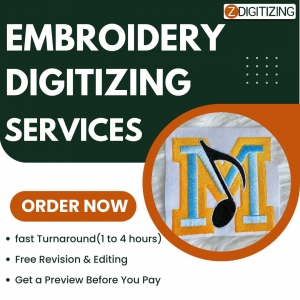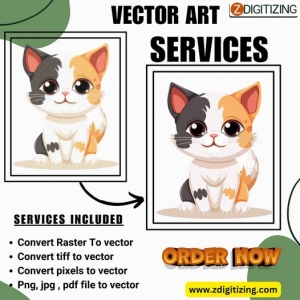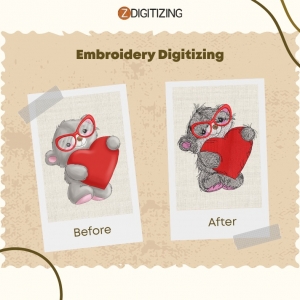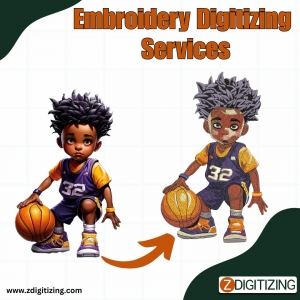In the competitive custom apparel and promotional products industry, the quality of a stitched design is a direct measure of a brand's standards. The journey from a digital logo to a perfectly embroidered product hinges on a critical technical process, which is done through an embroidery digitizing service. For any business involved in apparel production, choosing a professional digitizing service is a foundational decision that impacts machine efficiency, product quality, and overall operational costs.
A superior design can be quickly undermined by a substandard stitch file, leading to production delays and costly material waste. This guide provides a clear framework for selecting a reliable technical partner for this essential task.
The Strategic Value of a Professional Digitizing Partner
While automated digitizing software is available, it cannot match the analytical skill and experience of a professional digitizer. Outsourcing this function is a strategic decision that provides access to specialized expertise and high-end software without the internal investment.
These technicians possess a deep understanding of the physical interplay between thread, needle, and fabric, ensuring every design is converted into an optimized file engineered for smooth, efficient production.
Evaluating a Potential Digitizing Service
Moving beyond price, a quality service should be evaluated on its technical capabilities and reliability. A partnership with a skilled digitizer pays dividends in smooth production and superior final products.
Technical Proficiency with Diverse Fabrics: A competent digitizer’s first question should be about the fabric you are using. Their skill is demonstrated in their ability to adapt. A design intended for a stable twill cap requires entirely different parameters than one for a flexible performance knit or a thick fleece hoodie.
A professional must manually adjust stitch density, underlay settings, and pull compensation to prevent puckering on thin materials or thread loss on plush fabrics, ensuring the final design is clean and flat.
A Verifiable Track Record and Proofing Process: A reputable service will have a strong portfolio showcasing their work on projects similar to yours. Look for a partner who is transparent and willing to provide a digital proof or, more importantly, a physical "sew-out" (a stitched sample). This proofing step allows you to verify the quality and approve the final result before committing to a full production run, preventing costly errors.
Adherence to Production Timelines and Clear Communication: The custom apparel industry operates on tight deadlines. A professional service respects production schedules and will provide clear, reliable turnaround times. Effective communication is essential, especially when revisions are required, to ensure your production line remains operational and your delivery commitments are met.
Transparent Commercial Terms and Technical Support: Look for a service with a clear, upfront pricing structure. They must also provide comprehensive technical support, including delivering the final stitch file in the precise format required by your specific embroidery machines, whether it's .DST, .PES, .JEF, or another industry-standard format.
The Financial Impact of Digitizing Quality
Choosing the right digitizing service has a direct and measurable impact on your business operations. A professionally prepared file runs smoothly on embroidery machines, significantly reducing the frequency of thread breaks and minimizing machine downtime. This optimization leads to faster production speeds and a lower rejection rate for finished goods.
Ultimately, the quality of your embroidery protects your brand's reputation. A crisp, durable, and professional-looking design signals to your clients that you value excellence in every detail. In a competitive market, this attention to technical quality is a powerful differentiator. Before beginning your next project, vet your digitizing partner as you would any other critical supplier in your quality chain.









